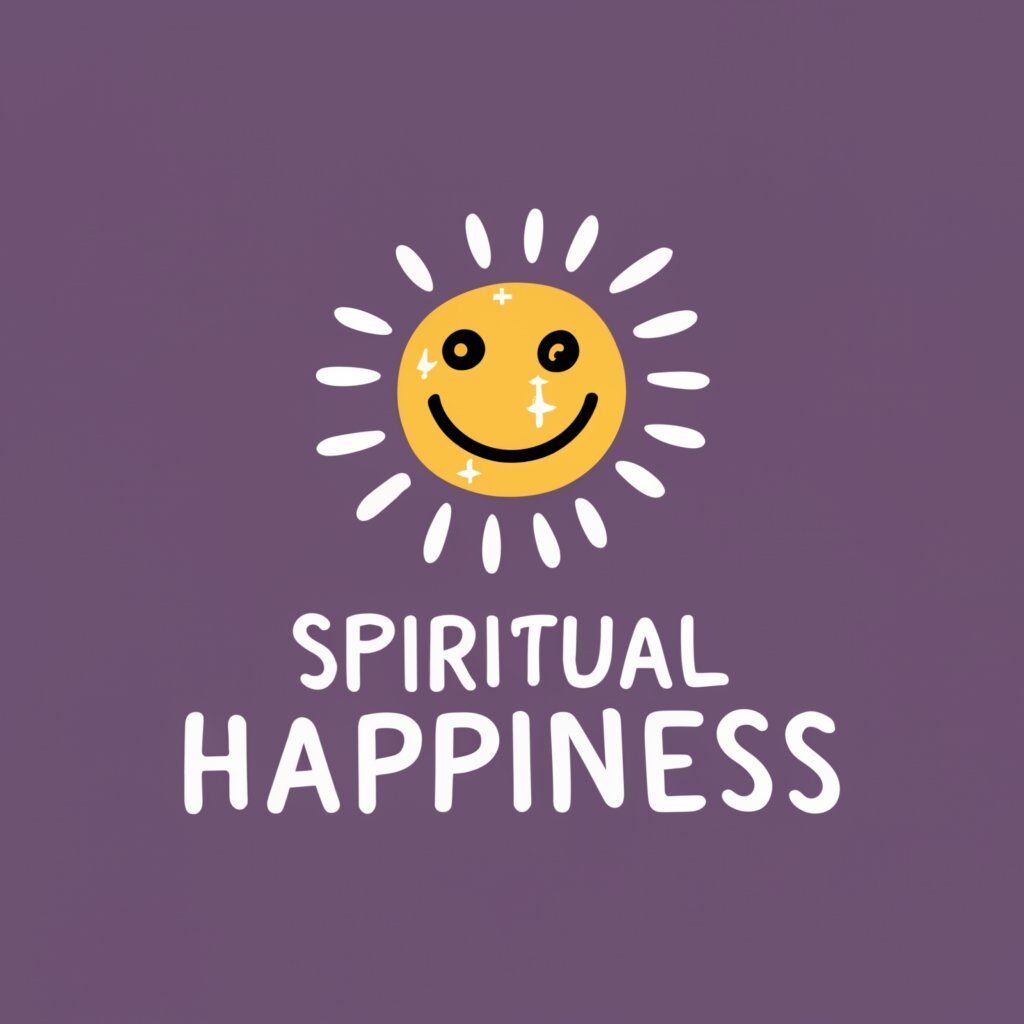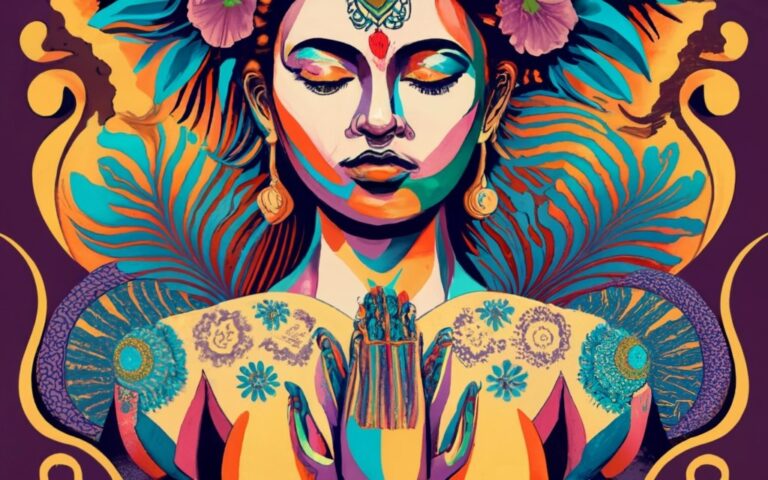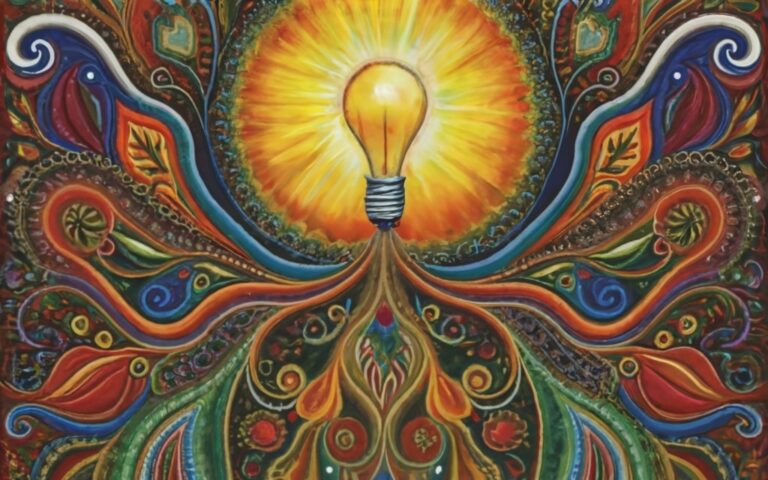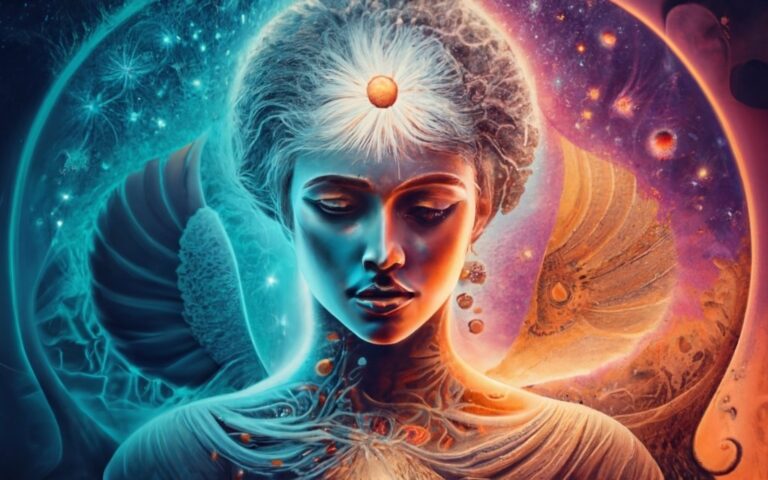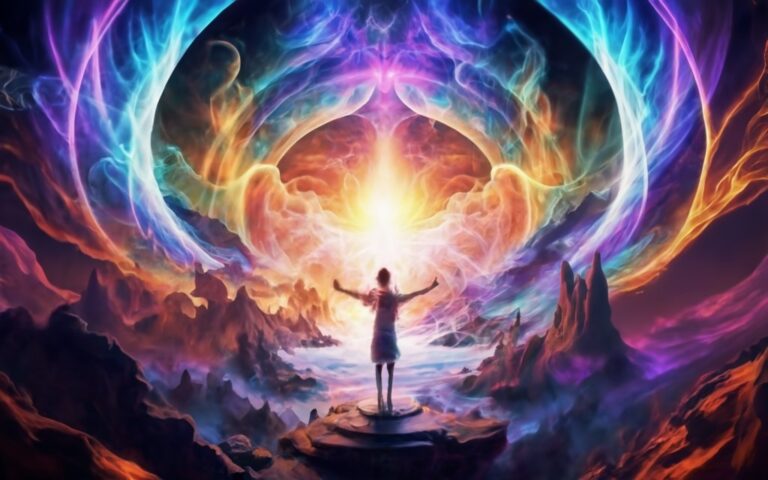Exploring the Depths: Understanding the Difference Between Spirituality and Religion
In today’s fast-paced world, the quest for meaning and purpose in life often leads people down two distinct paths: spirituality and religion. These two terms are frequently used interchangeably, but are they truly the same? What does it mean to be spiritual and religious, and what sets them apart? Let’s embark on a journey of discovery as we delve into the intricacies of these two facets of the human experience.
Unveiling the Spiritual Realm

What does it mean to be spiritual and not religious?
Spirituality is a deeply personal and introspective journey that transcends the boundaries of organized religion. It involves a profound connection with the self, nature, and the universe. Being spiritual but not religious means embracing a sense of awe and wonder about the world around us, seeking answers to life’s big questions independently.
What does it mean to be spiritual vs. religious?
Spirituality and religion may share common ground in their pursuit of meaning, but they differ significantly in their approach. While spirituality is a personal and individual path, religion often involves adherence to established rituals, beliefs, and doctrines. Spirituality is about finding one’s unique connection to the divine, while religion provides a structured framework for worship and practice.
What does it mean to be spiritual instead of religious?
Choosing spirituality over religion means opting for a more flexible and personalized approach to one’s faith. It allows individuals to explore their spirituality on their terms, free from the constraints of organized religious institutions. This path offers a sense of autonomy in defining one’s beliefs and values.
What does it mean to be spiritual without being religious?
Being spiritual without adhering to a specific religious tradition empowers individuals to create their spiritual path. It means embracing a holistic view of life, connecting with the inner self, and seeking harmony with the universe without the need for religious dogma.
What does it mean to be faithful, spiritual, religious, atheist, or agnostic?
The spectrum of beliefs and worldviews is vast. Some individuals identify as faithful, aligning themselves with a particular religious tradition. Others are spiritual, finding solace in their personal connection to the divine. Then there are atheists and agnostics who approach spirituality and religion with skepticism or disbelief. Each perspective offers a unique lens through which to view the world.
Navigating the Religious Landscape
What does it mean to be spiritual Christian?

Being a spiritual Christian combines the teachings of Christianity with a deeply personal connection to the divine. It involves living out one’s faith in a way that aligns with their inner spiritual journey, emphasizing love, compassion, and empathy.
What does it mean to be religious and spiritual?
Religion and spirituality can coexist harmoniously for many individuals. Being both religious and spiritual means integrating the practices and beliefs of a religious tradition with a profound spiritual connection. It involves finding spiritual meaning within the framework of a religious community.
What does it mean to be spiritual in religion?
In the context of religion, spirituality is the essence that breathes life into rituals and doctrines. It’s about fostering a deep, personal connection with the divine while participating in religious practices. Being spiritual in religion means finding transcendent meaning within the confines of a particular faith.
What is the difference between being religious and being spiritual?
The distinction between religious and spiritual lies in the depth of personal connection and the level of adherence to organized beliefs and practices. Being religious often entails conforming to the rituals and doctrines of a specific faith, while being spiritual emphasizes a more personal and flexible connection to the divine.
The Crux of the Matter
What does it mean to be spiritual?

At its core, spirituality is about seeking meaning and purpose in life. It involves exploring the depths of the self, fostering a connection with the universe, and finding harmony within and without. Spirituality transcends the boundaries of religion and offers a unique path to enlightenment.
Difference between spiritual and religious
While spirituality and religion share common ground in their pursuit of meaning, they differ in their approach. Spirituality is a personal, individual journey, while religion involves adherence to established rituals and beliefs within a structured framework.
What does “spiritual but not religious” mean?
Being spiritual but not religious signifies a personal quest for meaning and connection to the divine that is independent of organized religion. It embraces a sense of wonder, awe, and self-discovery.
Does spiritual mean religious?
Spirituality and religion are related but distinct concepts. While spirituality can be a component of religious practice, it can also exist independently, making it possible to be spiritual without adhering to a specific religion.
The Complex Interplay

What does it mean to be spiritual and religious difference?
Understanding the difference between spirituality and religion is key to unraveling their coexistence. While spirituality often emphasizes personal growth, self-discovery, and a connection with the broader cosmos, religion centers on established traditions, rituals, and a sense of community. However, it’s crucial to recognize that these distinctions aren’t always clear-cut. Many individuals find themselves navigating the delicate balance of being both spiritual and religious.
What does it mean to be spiritual and religious competencies?
Spirituality and religiosity are not mutually exclusive; they can complement each other. Being spiritually competent within a religious context means embracing the values, principles, and teachings of one’s faith while maintaining a deep and personal connection to the divine. This harmony can lead to a more fulfilling and enriched spiritual life.
What does it mean to be spiritual and religious images?
The imagery associated with spirituality and religion varies greatly. Spirituality often conjures images of serene meditation in nature, self-reflection, and the pursuit of inner peace. In contrast, religion evokes images of places of worship, sacred rituals, and gatherings of like-minded individuals. However, these images only scratch the surface of the profound experiences and emotions that both spirituality and religion can evoke.
Bridging the Divide

What does it mean to be spiritual but not religious mean?
Being spiritual but not religious represents a modern approach to faith that resonates with many individuals. It signifies a desire for a deeply personal connection to the divine without the constraints of organized religion. This path allows for flexibility and freedom in exploring one’s beliefs while nurturing a profound sense of spirituality.
What does it mean spiritual but not religious mean?
Spiritual but not religious is a declaration of autonomy in one’s faith journey. It signifies a departure from traditional religious structures in favor of a more intuitive and self-directed exploration of spirituality. This path encourages individuals to seek answers to life’s existential questions independently.
Does spiritual mean religious?
Spirituality and religion share common elements, such as a quest for meaning and purpose, moral guidance, and a connection to the divine. However, spirituality is a broader concept that encompasses personal growth, self-discovery, and a sense of wonder about the universe. While spirituality can coexist with religion, it can also thrive independently.
Embracing Diversity
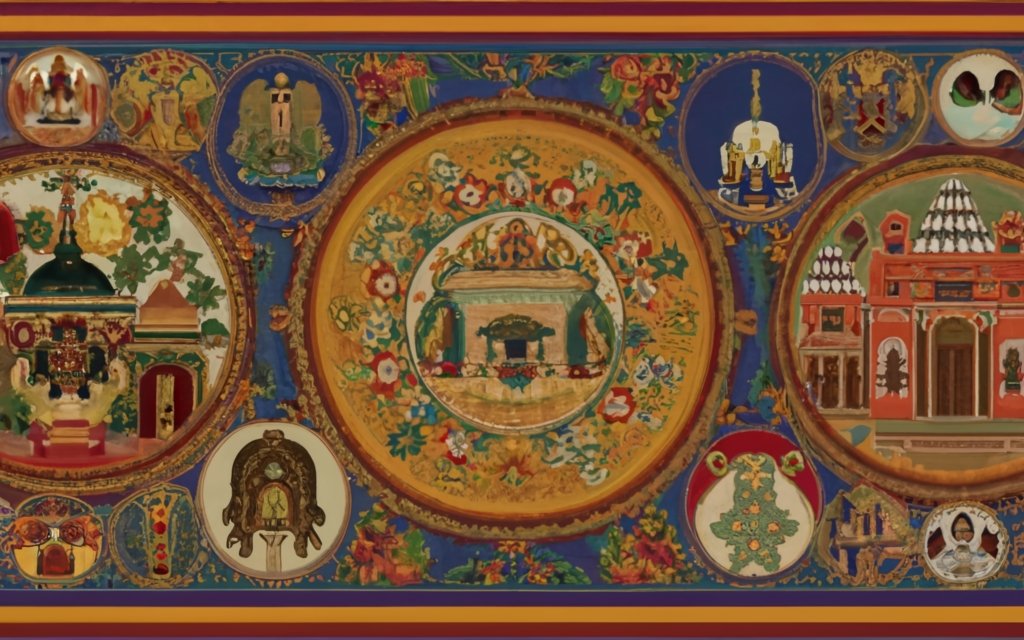
In the end, what does it truly mean to be spiritual and religious? The answer is as diverse as humanity itself. It’s a journey that defies a one-size-fits-all definition, allowing each individual to chart their unique path. Whether you find solace in the rituals and traditions of organized religion or embark on a personal quest for spiritual enlightenment, the beauty lies in the diversity of perspectives.
It’s important to remember that the pursuit of spirituality and religion isn’t confined to a single, rigid definition. Instead, it’s a vibrant and evolving tapestry of human experiences, emotions, and beliefs. As we navigate our way through this intricate web of spirituality and religion, we uncover the profound essence of what it means to be human.
Conclusion: Embracing the Spiritual and Religious Journey
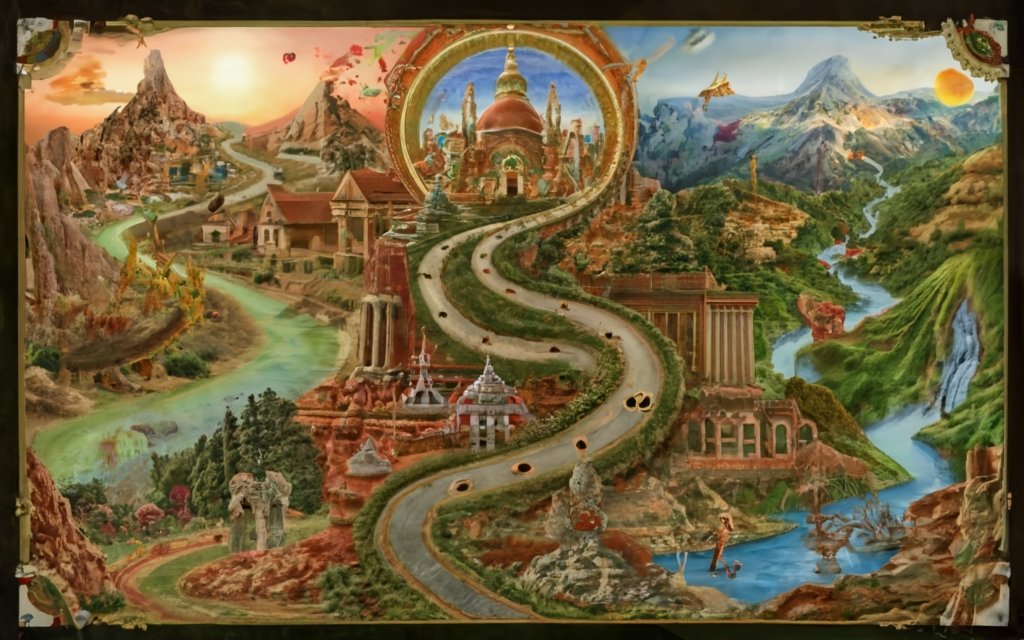
In the intricate tapestry of spirituality and religion, we have embarked on a profound exploration of what it means to be spiritual and religious. The journey has taken us through the diverse landscapes of personal connection, introspection, and the quest for meaning. Now, as we conclude our odyssey, it’s essential to reflect on the emotional richness of this exploration.
Throughout our journey, we’ve encountered individuals who have found solace and purpose in the arms of religion, embracing its traditions, rituals, and communities. Simultaneously, we’ve met those who have carved their path as spiritual seekers, fostering a deep connection with the self and the universe. The beauty of our exploration lies in the understanding that there is no singular path to enlightenment. Instead, there are countless avenues, each uniquely emotional and fulfilling.
FAQ: Navigating the Complexity
What does it mean to be spiritual and religious difference?
The difference between spirituality and religion is multifaceted. Spirituality is often a personal and individual journey, focusing on self-discovery, inner growth, and a connection with the broader cosmos. Religion, on the other hand, involves adherence to established traditions, rituals, and beliefs within a structured framework. However, it’s important to note that these distinctions aren’t always clear-cut, and many individuals find themselves navigating the space between both worlds.
What does it mean to be spiritual and religious competencies?
Spiritual and religious competencies involve the ability to harmoniously integrate one’s spiritual beliefs with their religious practices. It means being proficient in both realms, finding a balance between personal spirituality and the adherence to religious teachings. This competence can lead to a more enriched and emotionally fulfilling spiritual life.
What does it mean to be spiritual and religious images?
The imagery associated with spirituality and religion is diverse and evocative. Spirituality often brings to mind serene moments of meditation in natural settings, deep introspection, and a profound sense of wonder about the universe. Religion conjures images of sacred places, rituals, and gatherings of like-minded individuals in worship. These images capture only a fraction of the emotional depth and experiences that spirituality and religion encompass.
What does it mean spiritual but not religious mean?
Being spiritual but not religious signifies a personal quest for a deep connection to the divine that exists independently of organized religion. It represents a desire for a more flexible, individualized, and self-directed approach to spirituality. This path allows individuals to explore their beliefs and foster their spirituality on their terms.
What does it mean spiritual but not religious mean?
“Spiritual but not religious” is a declaration of autonomy in one’s spiritual journey. It signifies a departure from traditional religious structures in favor of a more intuitive and self-guided exploration of spirituality. This path encourages individuals to seek answers to life’s profound questions independently and embrace their unique spiritual experiences.
Does spiritual mean religious?
Spirituality and religion are related concepts, sharing common elements such as the pursuit of meaning, moral guidance, and a connection to the divine. However, spirituality is a broader concept that encompasses personal growth, self-discovery, and a sense of awe and wonder about the universe. While spirituality can coexist with religion, it can also thrive independently, making it possible to be spiritual without being religious.
In conclusion, our emotional journey through the intricacies of spirituality and religion has unveiled the profound diversity of human experiences and beliefs. It has shown us that the quest for meaning and connection is deeply personal and emotionally enriching. Whether you find solace in religious traditions or embark on a spiritual journey of self-discovery, the emotional depth of your path is a testament to the beauty of the human experience. Embrace your unique journey, for it is through this exploration that we truly understand what it means to be spiritual and religious in our ever-evolving world.
